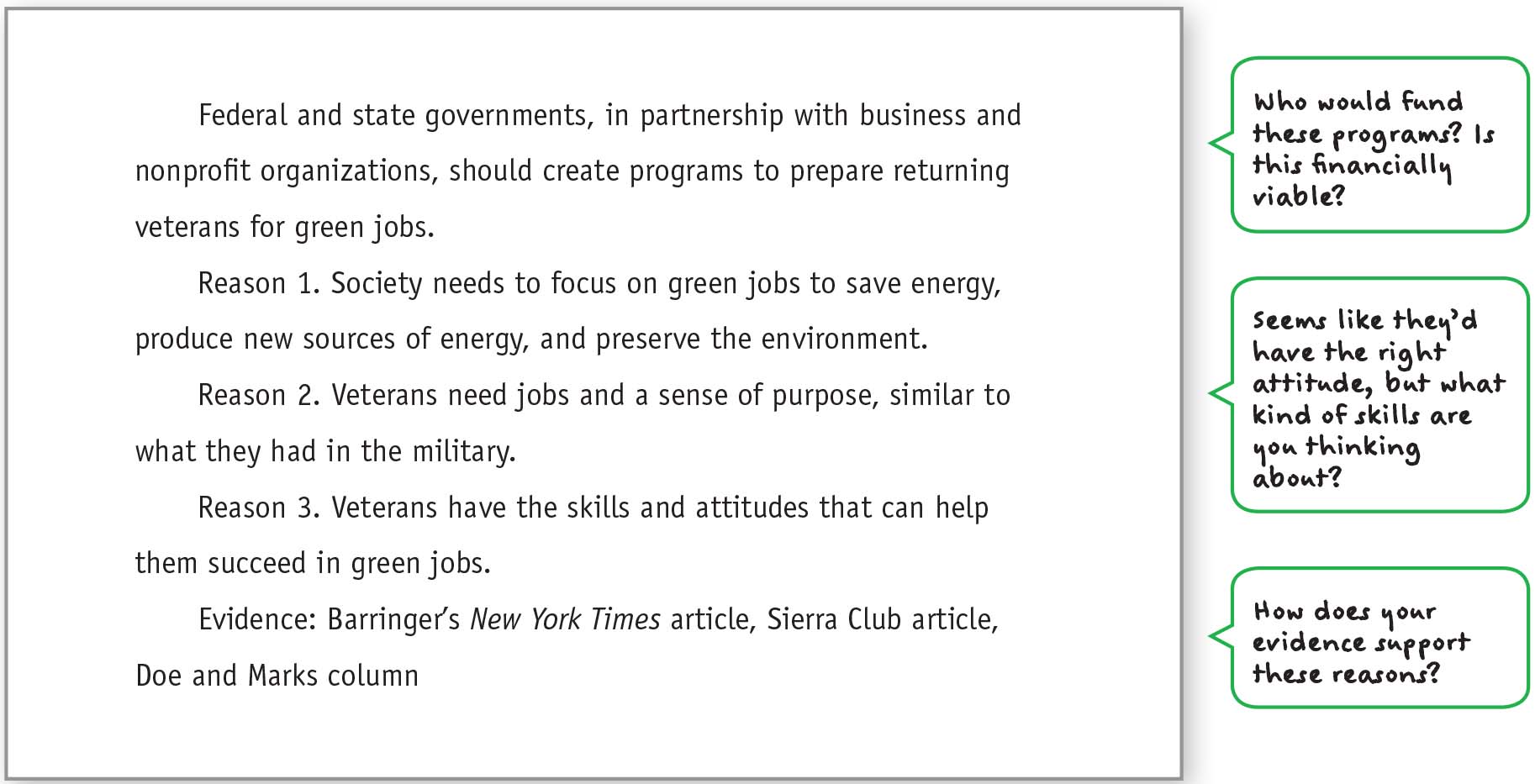Work Together to Refine Your Argument
As you learn about and reflect on the conversation you’ve decided to join, you’ll begin planning what you will contribute to the conversation. Feedback from other writers can help you develop and refine the main point you’ll share with your readers and the reasoning and evidence you’ll use to persuade them to accept your main point.
Writers usually express their main point through a thesis statement (see Chapter 14). A good thesis statement invites readers to learn something new, suggests that they change their attitudes or beliefs, or advocates taking action of some kind. In effect, your thesis statement serves as a brief summary of the overall argument you want to make to your readers. To determine whether your thesis statement conveys your main point clearly and effectively, ask for feedback from other writers. You might ask friends or family members to read your thesis statement and tell you what they think it means, as Megan Martinez did with an early draft of a thesis statement she developed for an argumentative essay about supporting returning military veterans. You might ask them to offer counterarguments or alternative perspectives on your issue. You might ask them to engage in a role-playing activity, in which they pretend to be someone who disagrees with your perspective. Or you might ask for feedback during a peer-review session in class. Regardless of where it comes from, listen carefully to the feedback you receive. Your thesis statement plays a central role in shaping the decisions you’ll make about the reasons and evidence you’ll offer to support your main point, and it can also affect the organization and design of your document.
For a closer look, click on each image to enlarge it.

As you develop a set of reasons to accept your main point, ask for feedback on them as well. You might create an outline of your argument or write a rough draft (see Chapter 16). Friends, family, and classmates should be able to provide their reactions to the reasons you are offering. They can give you feedback on the appropriateness and effectiveness of the evidence you’ve selected to support your reasons and the order in which you present your reasons and evidence. And they can help you generate ideas for new and potentially more effective reasons and sources of evidence. Just as you can with a thesis statement, you can ask people to offer counterarguments or to adopt roles. And, of course, you can solicit feedback on your reasons and evidence from classmates during peer-review or idea-generation sessions.

Your argument — your main point, reasons, and evidence — is the heart of your contribution to the conversation you’ve decided to join. By working with other writers, you can gain valuable feedback on your argument, feedback that can help you refine it and make it more effective.